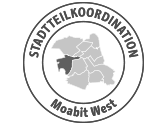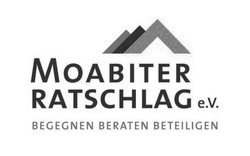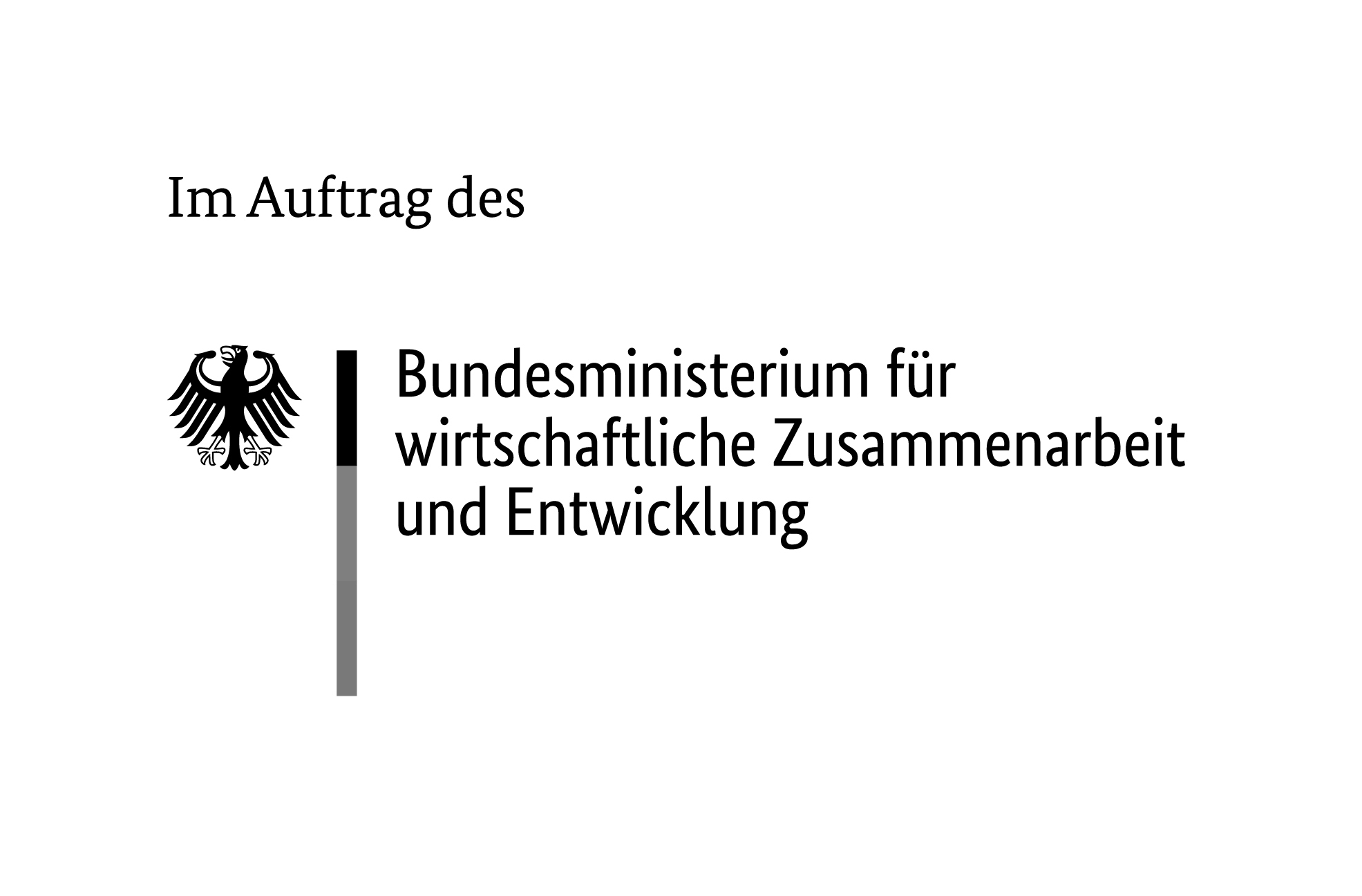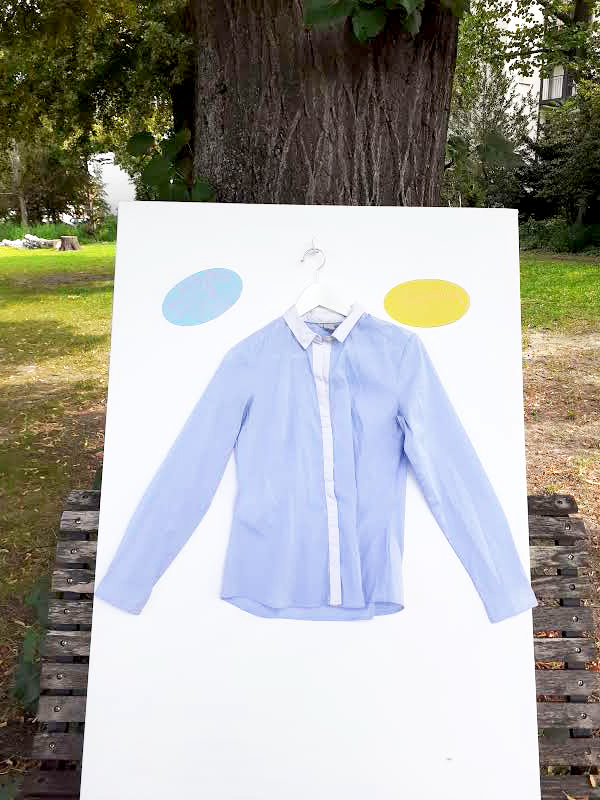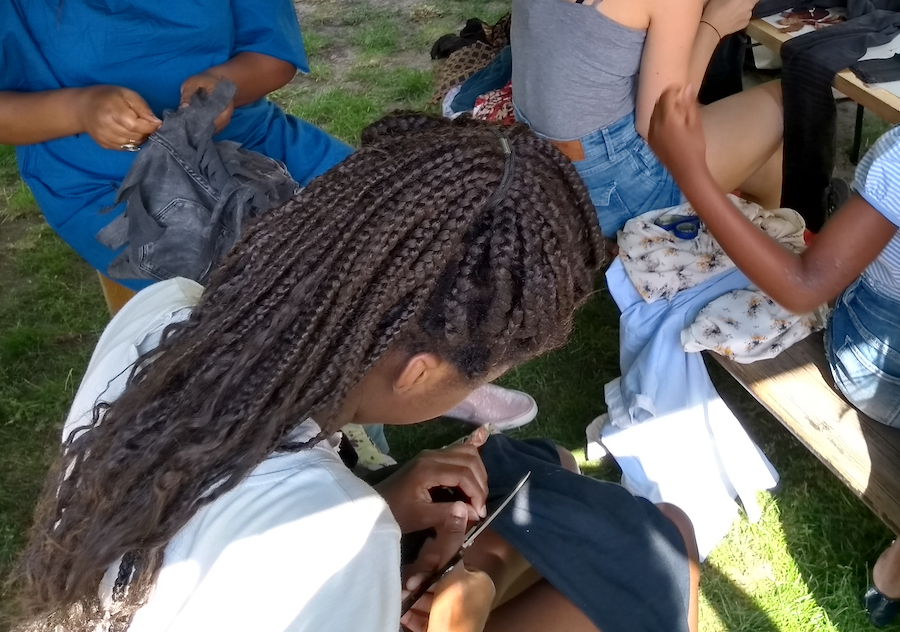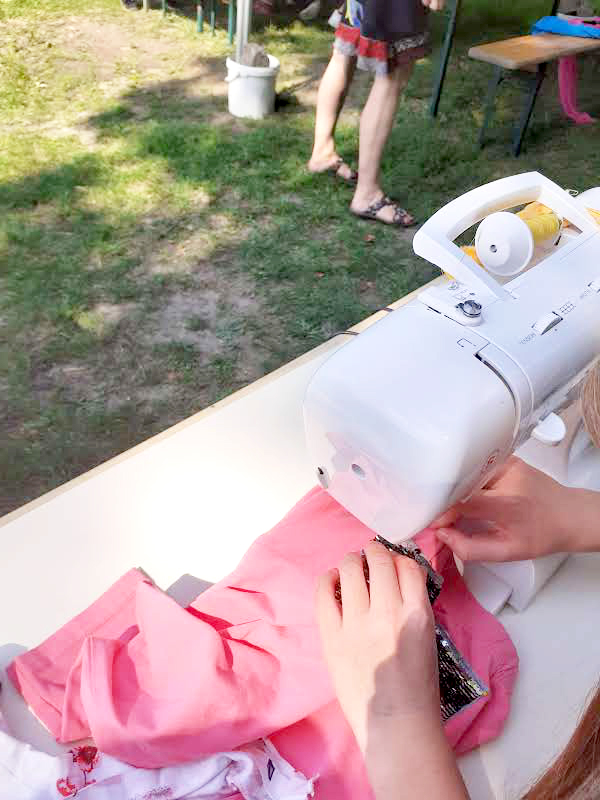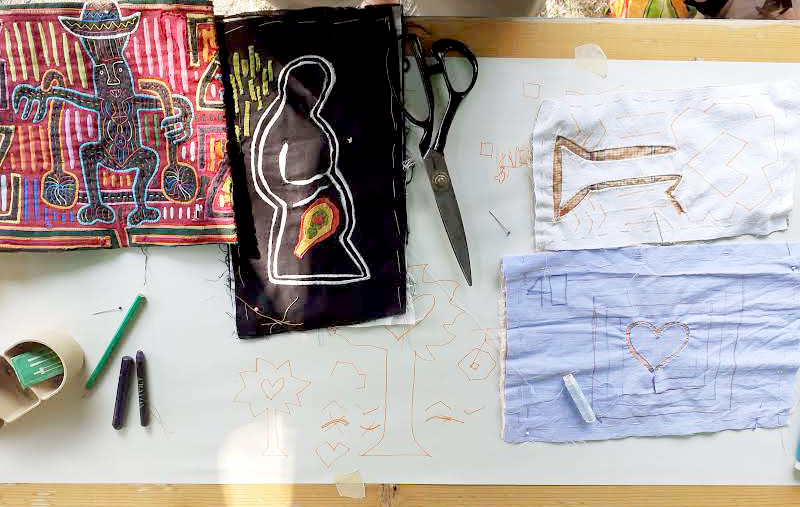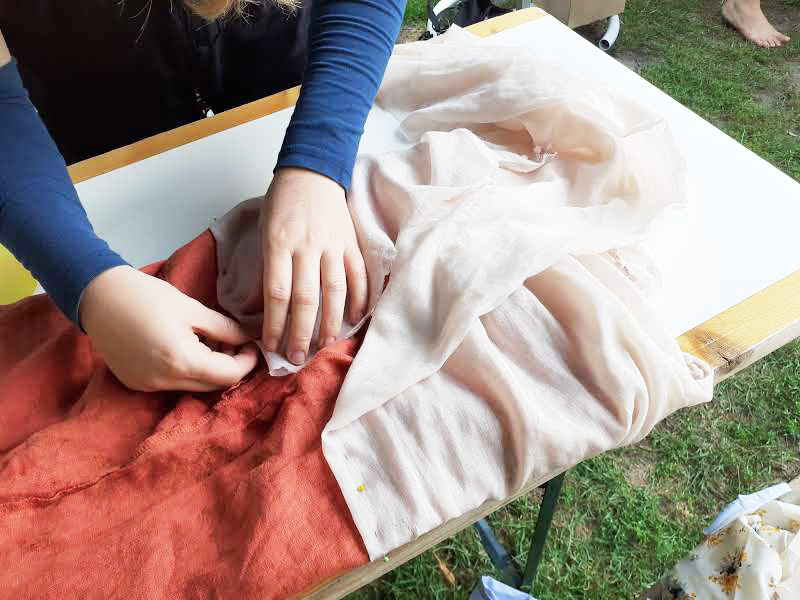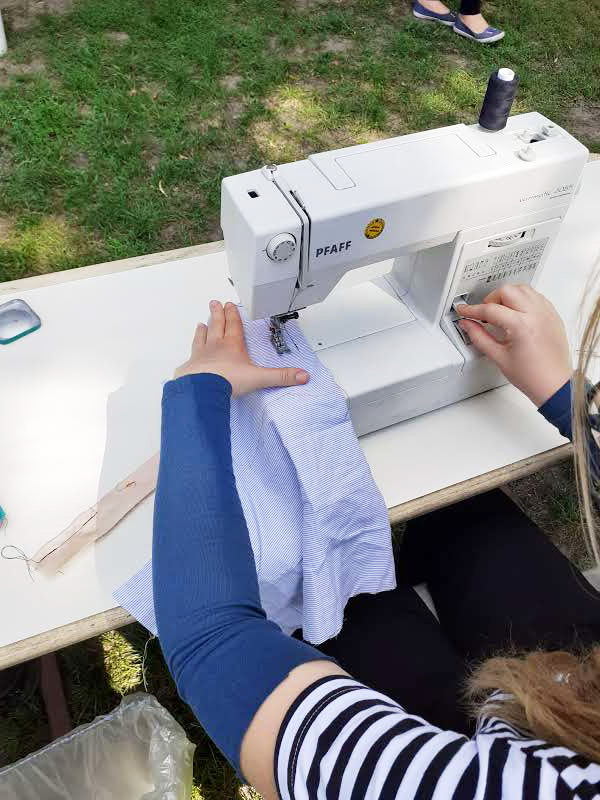During a two-day workshop set in a local community garden, participants swapped, repaired and reinvented their used clothing. Set up as a temporary outdoor workspace, the workshop provided a communal experience of neighbourly exchange.
Tracing back the origins of the clothing they brought with them, taking a closer look at the materials they were made of and sharing what made them choose a specific item made them appreciate the clothes in a new way. The truthfulness of labels of origin was questioned while we discussed current legislation and unofficial subcontracting to countries never disclosed to the end consumer.
As the workshop progressed and participants learned and exchanged sewing skills with each other, making new garments out of the old, they became aware of the many hands the pieces they were working on had already passed through. Reflecting on their own convivial sewing experience during the workshop and how it compared to factory working conditions elsewhere brought them closer to the garment worker, honoring their work as well as adding something of their own.
With most of the garment workers as well as the workshop participants made up of young girls and women, we discussed how sewing was still regarded as 'women's work' and in many places one of only few options for girls denied of other opportunities. Yet sewing could also be an expression of solidarity and independence, as we learned through the slow craft of making 'molas' (a textile art form) of indigenous Caribbean Kuna women, transmitted to participants by guest artist Alexandra Bibiscus. Instead of anonymous, mass produced factory made clothes, the Kuna women stitch their own personal histories into each piece of cloth.
As participants stitched their own pieces in quiet meditation, there was a shift in how the clothes were perceived: from disposable raw material on the morning of the first day, to pieces filled with personal histories and memories on the evening of the second.
Neighbourhood workshops for participants of all ages, Berlin-Moabit.
Collaboration with garment engineer Dagmar Schwarz and Schulgarten Moabit.
Supported by Engagement Global with funds of the German Federal Ministry of Economic Cooperation and Development and regional fund Stadtteilkasse Moabit.
